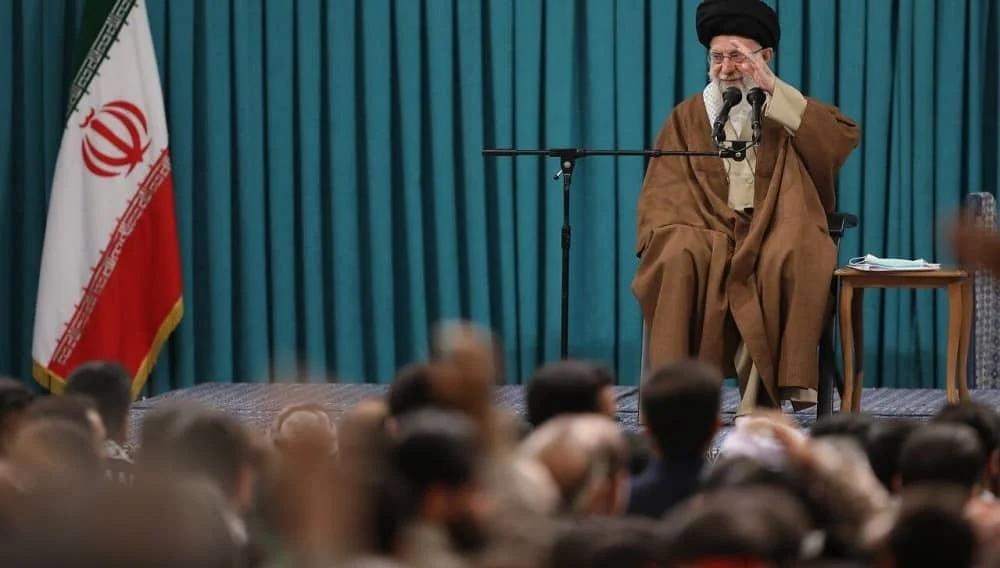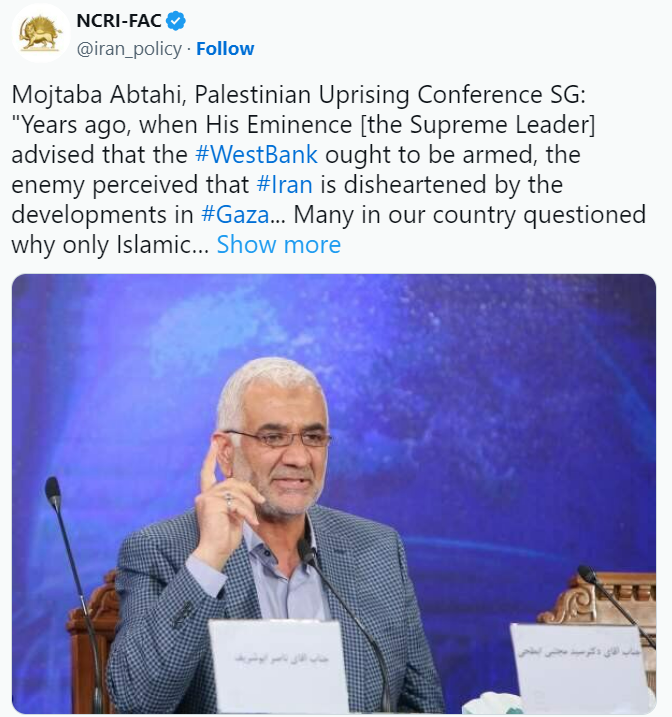
During a recent meeting with commanders and Basij forces, Ali Khamenei, the Supreme Leader of Iran, delivered a speech that inadvertently revealed significant details about his regime’s involvement in regional conflicts and internal struggles.
On November 29, Khamenei sought to embolden his supporters by adopting a celebratory tone about the Gaza conflict, stating, “The storm of Al-Aqsa is not something that will be silenced; they should know that this situation will not continue.” This statement hinted at his dissatisfaction with current events and his regime’s influential role in the ongoing turmoil.
Khamenei also proclaimed that the “Al-Aqsa storm” disrupted American policies in the region, indicating a hope for its continuation. This marked a departure from previous denials of involvement in the October 7 attack, thus acknowledging the regime’s decisive role in the conflict. However, his speech contained contradictions, simultaneously expressing a desire for both the cessation and continuation of the situation, reflecting confusion over regional conditions and the crises his regime faces.
His comments on the tragic situation in Gaza, which has resulted in thousands of casualties, refugees, and widespread destruction, displayed a lack of empathy. Additionally, Khamenei’s focus shifted to the Palestinian issue, where he advocated for a referendum for all Palestinian lands, thereby undermining the two-state solution and positioning his regime in opposition to the legitimate Palestinian government, international consensus, and the recent Islamic conference.
#Iran News in Brief
Amidst #MiddleEastConflict, Tehran's detrimental role is increasingly apparent. While officials strive to boost their forces, projecting a facade of victory, they inadvertently highlight the regime's imprint, leaving it vulnerable to intensified scrutiny. 1/ pic.twitter.com/UixyZprvM0— NCRI-FAC (@iran_policy) November 29, 2023
In his speech, Khamenei emphasized the readiness of Basij, a paramilitary force, to counter any threat, suggesting his concerns about societal unrest and potential uprisings. However, this rhetoric seemed more propagandistic, as the Basij force is reportedly undergoing erosion. High-ranking cleric Ahmad Alamolhoda admitted to enrolling non-Basijis temporarily, and judiciary head Gholamhossein Mohseni Ejei acknowledged the division within Hezbollah’s ranks, indicating internal factionalization.
Khamenei’s attempt to uplift the spirits of his forces, amidst public discontent and consecutive years of attacks, led to political costs, inadvertently exposing his regime’s involvement in terrorism and the suffering in the Middle East.

As his statements could be interpreted differently based on political considerations and electoral interests, it is crucial for global leaders to scrutinize the vulnerabilities within Khamenei’s regime. Holding him accountable for his role in the massacre and destruction in Iran and across the Middle East should be a pivotal aspect of international foreign policy agendas.

MEK Iran (follow us on Twitter and Facebook), Maryam Rajavi’s on her site, Twitter & Facebook, NCRI (Twitter & Facebook), and People’s Mojahedin Organization of Iran – MEK IRAN – YouTu
